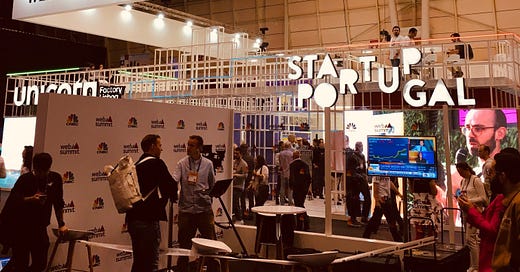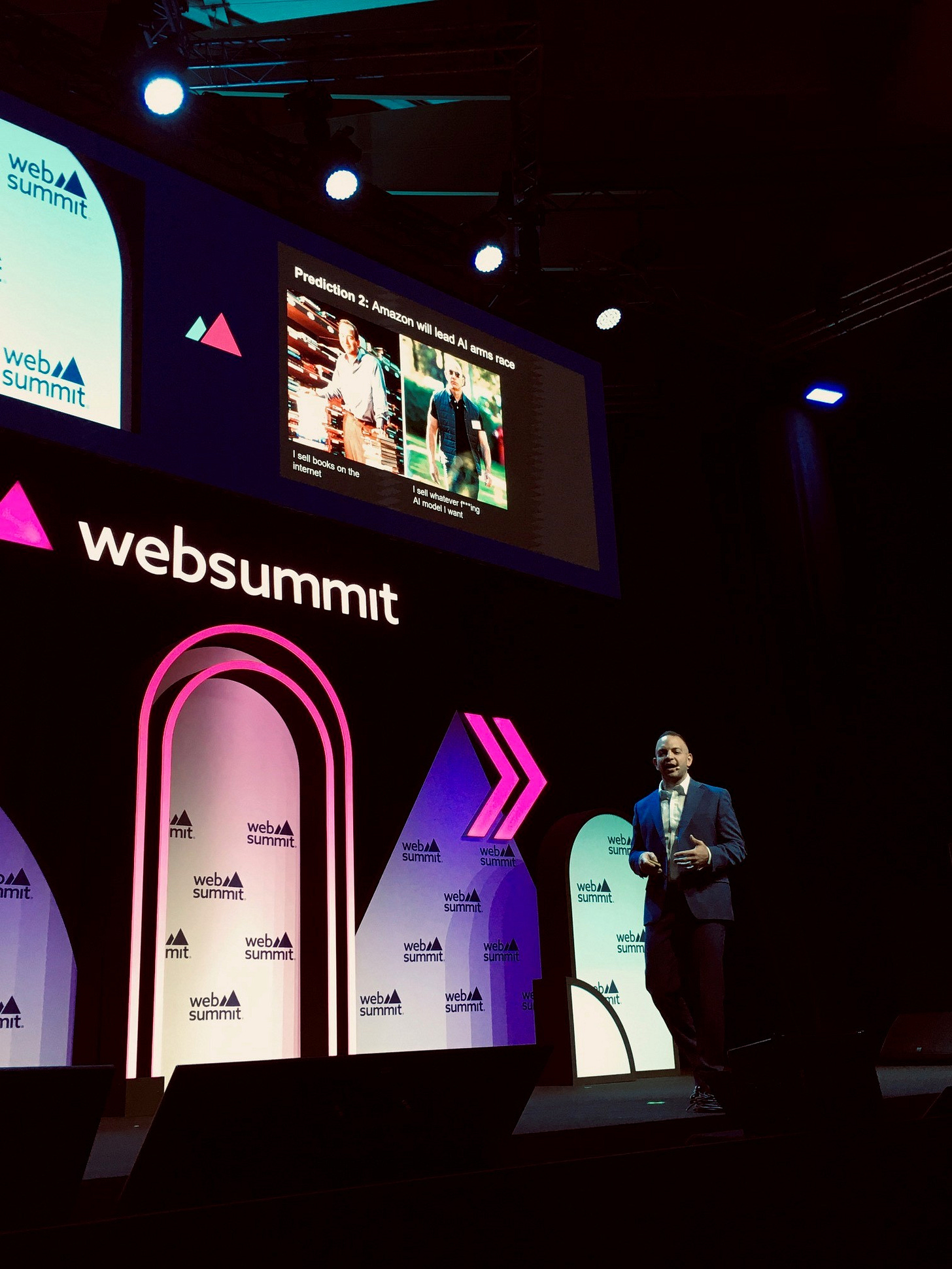Obrigada e até breve, Lisboa!
Key takeways from Web Summit: Queues are as unavoidable as not hearing artificial intelligence mentioned in every conversation. And Lisbon is simply stunning.
Ah, Lisbon, the city of sardines and cod, beautifully decorated shop fronts, ceramic tiles, cork, hills, historic yellow trams, good coffee and pastéis de nata (can’t believe I didn’t eat at least one), Fernando Pessoa and bookshops, melodic language, more hills, fado, and the most spectacular light this side of Western Europe (sorry, Paris).
But also the city where the world gathers for a week every November to attend Web Summit, one of the leading tech conferences in Europe and definitely the biggest and most international I’ve been to as proven by the fact I spoke in five different languages during my time there this week. Did I mention the weather was incredibly warm as well and that I didn’t need a coat and at times not even a jumper?
No wonder my brain and body are refusing to accept the fact that I’m back in chilly London. At least it is sunny, but it gets dark at 4 pm so the light hits differently and doesn’t warm up your heart in the same way. Since Portugal is also the country of saudade I guess I’m already on full nostalgia mode less than 24 hours back home.
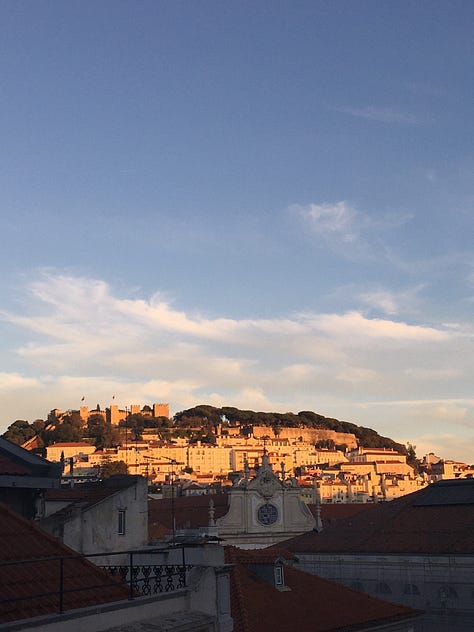
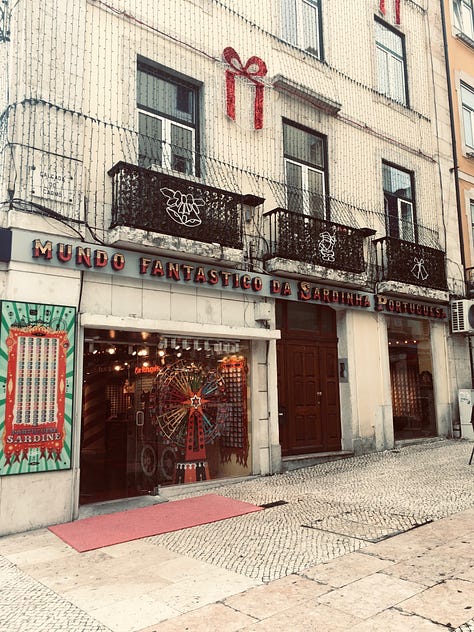
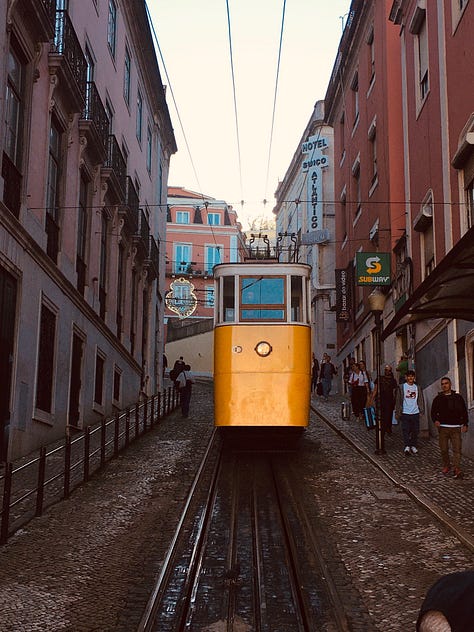
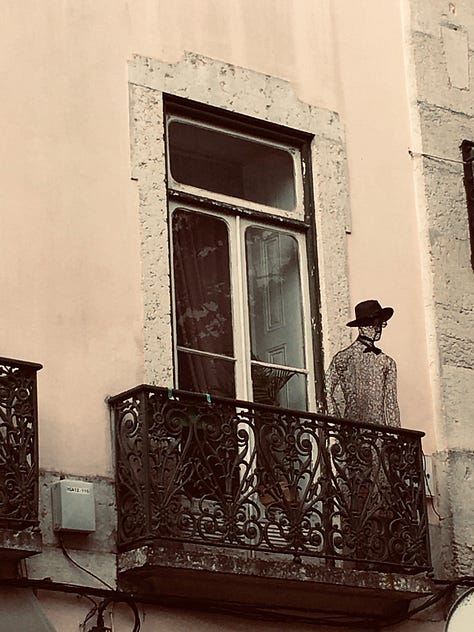
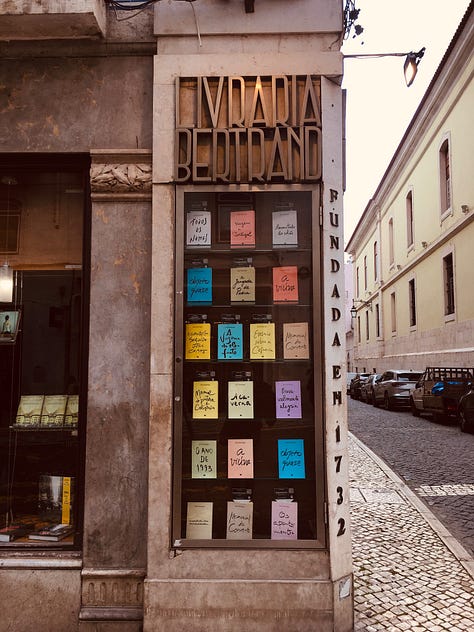

I always find interesting to revisit a place I have been to for pleasure and get to know it for business as often a very different side comes to light. In the case of Lisbon the city becomes one with Web Summit and there is a true community spirit in the air. In part thanks to the branded signs everywhere and the massive attendance - over 70,000 attendees this year- but mostly because we are all wearing our conference badges and wristbands at all times (there’s a penalty if you lose them), which makes it easy to spot fellow Websummiters.
While this imposed identification system leaves no room for hiding, I have to admit that it is a great icebreaker. This week I’ve found myself having spontaneous conversations with very interesting people while waiting for trams and buses, on the tube, in queues -getting it and out of the main venue, for lunch, coffee, the toilets; at Web Summit there is always a queue long enough waiting for you. Even in the lift as I made my way to the hotel reception ready to check out I started talking to someone who was heading to the conference venue (badge and wristband on display) and who happened to have met one of my colleagues on the first day during the opening ceremony.
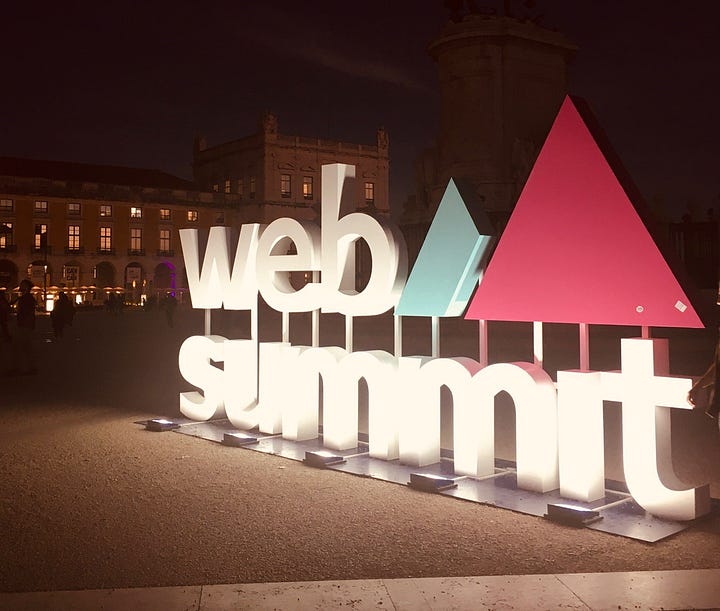
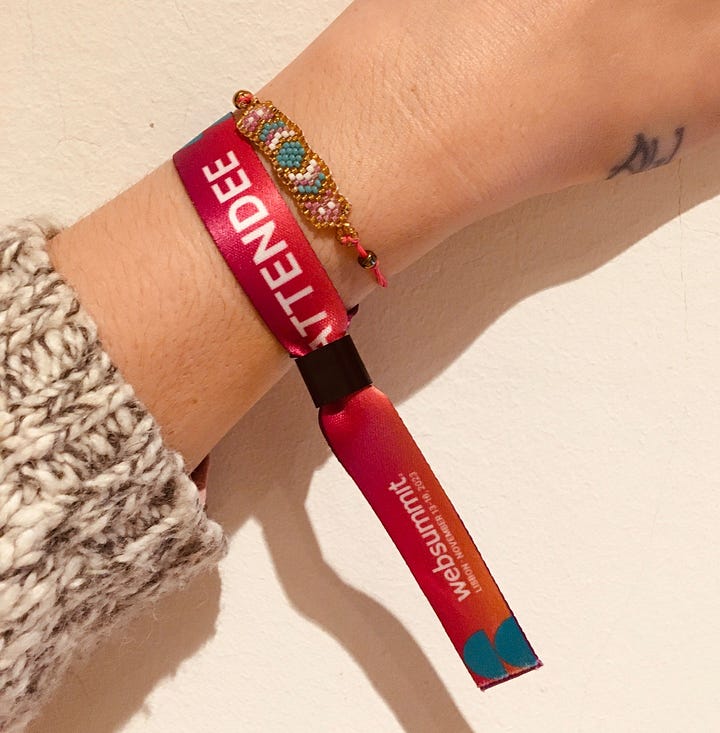
Without boring you with the details of a tech conference, because to paraphrase Tolstoy all good tech conferences are alike, but each is unique in its own, there was one thing that was obvious at Web Summit: Artificial Intelligence is everywhere and impacting everyone from games to media, climate to healthcare, mobility or the future of storytelling.
Although I didn’t have much time to join all the talks I was interested in, one of the sessions I made sure to listen to was a panel on the role of generative AI in fashion with Matthew Drinkwater, Head of the Fashion Innovation Agency at the London College of Fashion. A conversation that took place at the aptly named AI Stage, which was packed every day.
Matthew shared the potential of AI for design and to transform the physical shopping experience and make it more seamless for customers. One of the most interesting predictions he made was that in the near future we may walk into shops that don’t have any physical products on display as AI-powered tools and 3D models will be able to convey the look and feel of garments and objects to astonishing levels of realism.
These words were still echoing in my mind when the following day I listened to another session where it was argued how avatars are the future of online existence and how they could help us create more empathetic interaction with others. This is nothing groundbreaking for anyone who has followed the ebbs and flows of the metaverse in the past couple of years.
The difference now is that thanks to the developments in generative AI, digital avatars have stopped being the clunky sim-like versions of our 3D selves and are becoming sophisticated and stylised online personas. So much so that some of these AI avatars are making more money as digital self-suficient entities than you and I as real people will ever make.
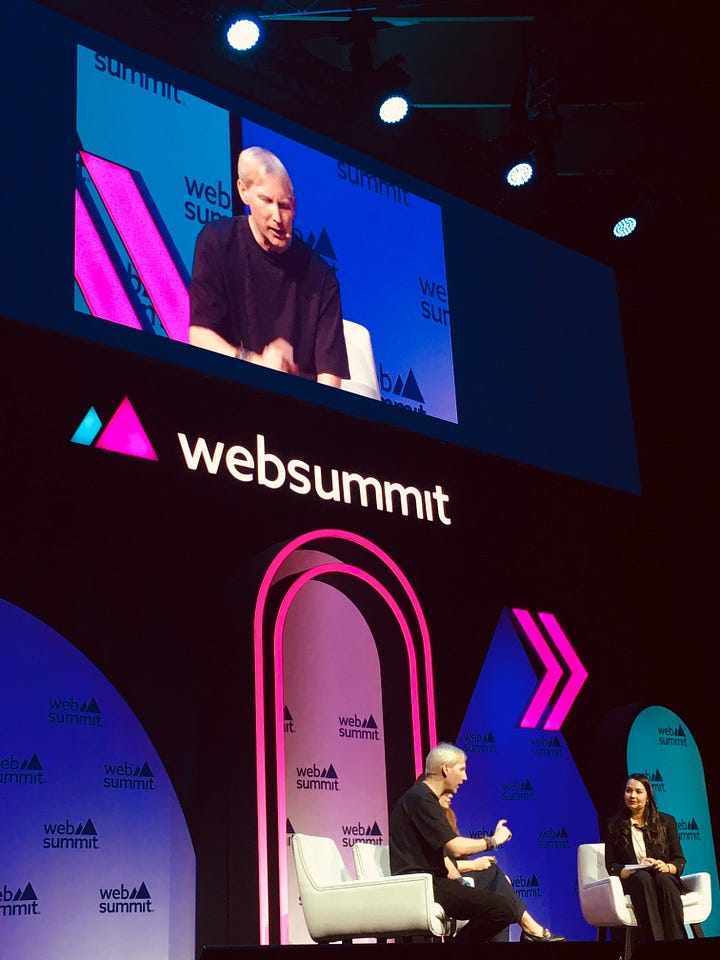
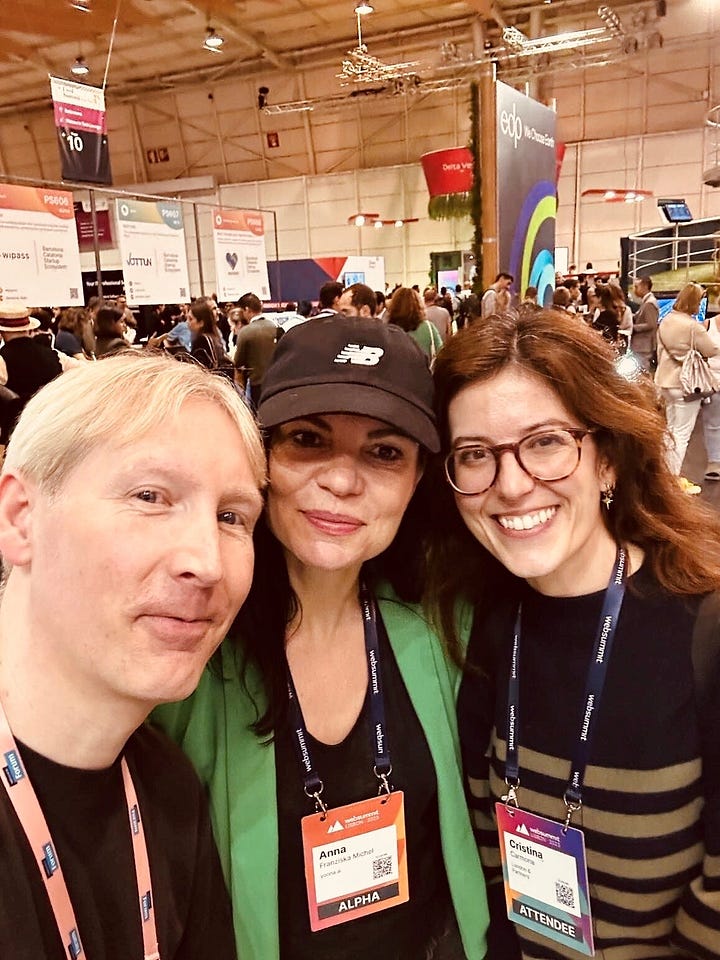
The other key takeaway from the conference came via journalist
who in his “Six Bold Predictions for AI” session anticipated that Amazon will soon become a leader in the artificial intelligence space, surpassing OpenAI, which is more vulnerable than it seems.As I type this I can’t help but think whether Kantrowitz might have known something -or had a crystal ball- as Sam Altman has just been fired from OpenAI. And now OpenAI President and co-founder Greg Brockman has resigned in protest.
Interestingly, in his predictions Kantrowitz quickly dismissed Elon Musk’s new AI venture Grok as a serious contender for the AI crown.
Back to Amazon, Kantrowitz -who I have just discovered has a great substack publication called
that you may want to check out as well as his podcast- argued that if the future interface of our interactions with technology is going to be voice-based, then Amazon is very well-placed to lead the way as there are already half a billion Alexa devices on the market. Touchée.Plus they are developing Olympus, their own LLM (large language model) and have recently rolled out their own AI image generator and generative AI writing tool for sellers. Not to mention the partnership with Meta and Instagram which will allow users to connect their social media accounts to Amazon for a seamless shopping experience.
And given that from next year Amazon will also star selling cars, you can also expect AI-enabled vehicles that will allow you to do your shopping while driving (because Alexa and Amazon will be integrated rather sooner than later) to become the new normal.
When that happens don’t forget you read it here first.
One of the streams I was gutted to miss at the conference was Book Summit as I was flying back to London. Luckily Lisbon is a relatively small city full of great bookshops and you’re never too far from one. I’m seriously impressed.
In fact, on my way to an AI meetup at LX Factory I discovered that the event was next door to Ler Devagar, a bookshop I couldn’t visit the last time I was in Lisbon. And as luck would have it two other bookshops were on the way from my hotel to the last networking event I attended at Cinemateca Portuguesa: Casa do Comum -newly opened cultural centre/bookshop by the owners of Ler Devagar- and Livraria da Travessa.
A 15 minute walk through steep streets also happened to be part of the itinerary, something Google maps failed to note. Between imprecations and pauses to catch my breath, I kept reminding myself that aerobic training is good for the cardiovascular system.
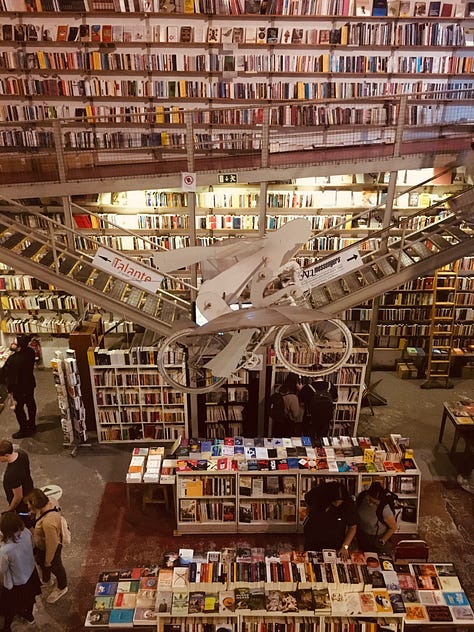
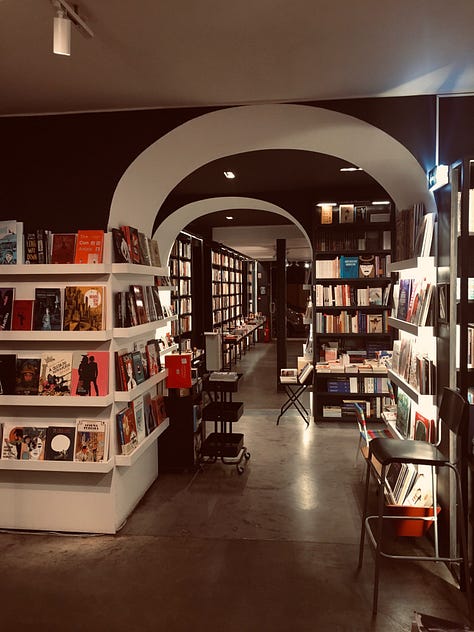
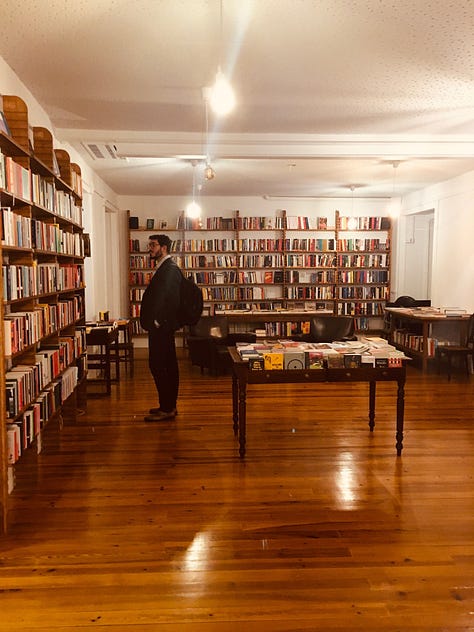
And because there’s life outside tech conferences, this week there are some great announcements on the creative industries front.
According to UK Music stats, the UK music industry contributed £6.9bn to the UK economy in 2022 and as part of the additional music investment announced within the UK Government’s Creative Industries sector vision, a £5m fund has been launched to support grassroot music venues.
And a new study commissioned by the British Film Institute (BFI) and the Creative Industries Policy and Evidence Centre (Creative PEC) that for the first time has measured the economic and social impact of cinemas in the UK, which amounts to £600,000 per cinema every year, and £5.18 million over 10 years. This figure is in addition to the general ticket and membership sales.
The study highlights the importance of cinemas as cultural and community assets and while audiences have been slowly to return to cinemas after the pandemic (in 2022 admissions were still 33% behind pre-pandemic 2019 levels), it shows that six out of ten UK adults (63%) visited the cinema at least once in 2022. The report also mentions how the success of Barbie and Oppenheimer have contributed to an upturn in admissions.
On this note Warner Bros has just revealed that Barbie -which was mostly shot at the Warner Bros Leavesden studios in Hertfordshire- has directly “contributed £80 million to the UK economy and created 685 jobs, involved over 6,000 extras, supported 754 local businesses, and paid over £40m in local wages” as reported by The Guardian.
I can only add that since an independent cinema opened in my neighbourhood I started going regularly for the first time after a decade in London. I have even recently upgraded my membership, which now allows me to see 7 films a week. I regret nothing.
This weekend I’m preparing for a double bill (Anatomy of a Fall and Saltburn) and last weekend I went to see Dream Scenario and I highly recommend it. I can hear you saying you’re not a big Nicholas Cage fan. Neither am I, but trust me he is great and the movie is worth it. Although I’m a bit worry about Amazon picking up on the dreamfluencers idea.
Tech News
£17m of DCMS funding will create 2,000 scholarships in AI and data science conversion courses in England.
Online retailer Asos to launch first physical store in London
Microsoft releases AI tool for photorealistic copying of faces and voices
Google DeepMind has just created the world’s most accurate weather forecaster using AI.
Vinted launches Item Verification service in the UK
Creative News
Google Deepmind and YouTube have unveiled Lyria - a generative AI model for music.
Model Karlie Kloss is buying British fashion mag i-D Magazine from Vice Media.
Amazon has laid off 180 employees from its gaming division.
The Crown is back -like David Cameron- although season 6 is not good
But worry not because there’s a new musical based Gwyneth Paltrow ski trial set coming to London
Last but not least
As I was headed to one event inside LX Factory I came across a live performance of Desde que o samba é samba by Caetano Veloso, which is a work of art especially in the version where he sings it with Gilberto Gil.
The moment I realised which song it was my face lit up. What are the chances of listening to this live in London, where most buskers go for rock in English? That’s the magic of being in Lisbon. I couldn’t resist to sing (out of tune), dance (terribly and while recording), and pat myself on the back for knowing the lyrics (most of them, which reminded me I should resume Portuguese classes)
I just thought you should all be aware this gem of a song exists. And there’s nothing artificial in it.
Have a good weekend!


